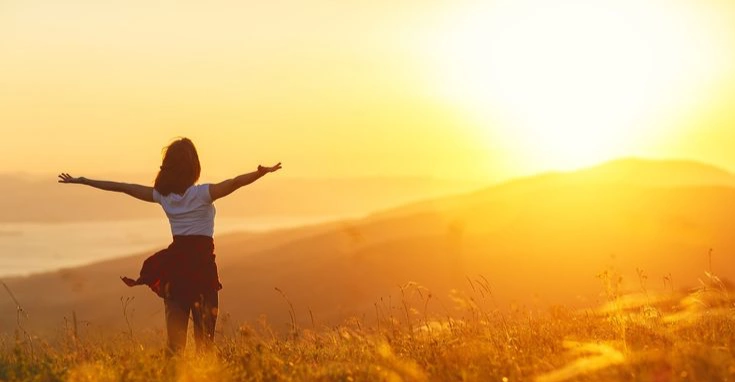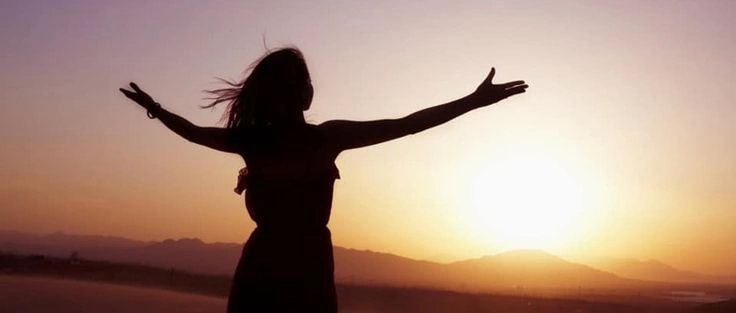The Power of Solitude: Why Being Alone Can Be Good for You
Modern society often sees solitude as a problem — something to be fixed or escaped. We are constantly surrounded by people, both in real life and online, always in conversation, always available. But solitude — especially when chosen mindfully — can be incredibly healing and essential for creativity, clarity, and inner peace.
Being alone gives us space to hear our own thoughts, reflect on what we truly want, and take a break from external noise. It’s a time for recharging, introspection, and inspiration. Many great artists, writers, and thinkers have cherished solitude as a wellspring of insight and depth.
Solitude helps us become more self-aware, self-reliant, and grounded. It allows us to build healthier relationships — not from fear of being alone, but from a sense of wholeness. Being comfortable with yourself is a skill, one you can develop: by taking walks without your phone, enjoying silent mornings, or going on short solo getaways.
Solitude is not emptiness — it’s space for growth, clarity, and creativity. In a world full of noise and distraction, learning to be alone is a path to real freedom.


Modern society often treats solitude as a problem — something to be solved, avoided, or filled. We are constantly surrounded by people, immersed in conversations, group chats, and social feeds. Even when physically alone, we’re often still connected — online, engaged, distracted. In a world that celebrates busyness and constant interaction, choosing to be alone can feel radical. But solitude, when embraced mindfully, is not only healthy — it's deeply nourishing.
Solitude is not loneliness. Loneliness is a feeling of disconnection, an ache for companionship. Solitude, on the other hand, is a choice to be with oneself — a space for reflection, rest, and reconnection with your inner world. It's the difference between isolation and intimacy with your own thoughts.
When we allow ourselves moments of true solitude, we gain the freedom to:
- Hear our own voice without external influence
- Reflect on our experiences and emotions with clarity
- Reconnect with our values and longings
- Discover new ideas and creative impulses
- Release the pressure to perform or please
Many great artists, writers, scientists, and spiritual leaders have turned to solitude as a source of insight, imagination, and perspective. From Virginia Woolf to Albert Einstein, from monks in silent retreat to solo travelers in remote places — solitude has always been a quiet engine of transformation.
In solitude, we become more self-aware and self-reliant. We learn to comfort ourselves, to face uncomfortable emotions, to sit with boredom and find beauty in stillness. This emotional independence makes our relationships stronger — not formed from neediness or fear, but from a sense of inner wholeness.
Cultivating solitude doesn’t require a cabin in the woods or a long retreat. It can be as simple as:
- Taking a walk without your phone, just observing your surroundings
- Enjoying your morning coffee in silence, resisting the urge to scroll
- Spending a quiet evening reading, journaling, or creating
- Taking yourself on a solo date — to a museum, a park, or a café
- Going on a short solo trip, even if it's just for a day
These moments, small as they may seem, teach us how to be with ourselves. We begin to notice the rhythm of our own minds, our emotional patterns, our unspoken desires. We discover that stillness is not stagnation — it is fertile ground for ideas, healing, and personal evolution.
In a culture obsessed with instant responses and constant stimulation, solitude can feel unfamiliar or even uncomfortable at first. But with practice, it becomes a sanctuary — a mental and emotional space where you are free to rest, reflect, and reset.
Solitude also invites us to slow down. To pause. To notice the details of life we so often rush past — the flicker of candlelight, the warmth of sunlight on the skin, the sound of our own breath. In these quiet moments, we remember what it feels like to truly live, not just exist.
Being comfortable with yourself is not just a personality trait — it’s a skill. And like any skill, it can be learned, nurtured, and refined. The more we lean into solitude, the more we realize it isn’t emptiness — it’s spaciousness. A space to think, to dream, to heal, to grow.
In a world overflowing with noise, distraction, and expectation, learning to be alone is not a weakness — it is a path to true freedom. A life rich in solitude is not empty, but full — full of awareness, intention, and authenticity.
So the next time you find yourself alone, don’t rush to fill the silence. Sit with it. Listen to it. There, in the quiet, you might just hear the voice you've been too busy to notice: your own.
Close